Project WyoTCH: Developing a Roadmap for a Sustainable Carbon Hub

Project WyoTCH—the Wyoming Trails Carbon Hub (WyoTCH, pronounced “Watch”)—will develop a carbon management Roadmap for Wyoming focused on the concept of “No Carbon Left Behind” (no stranded CO2, now or in the future). The Roadmap will serve as a blueprint or set of lessons learned for how other development teams can form open-access carbon hubs across the nation to help meet the Nation’s climate and energy goals.
SCO₂Tᴾᴿᴼ: Unlocking the Nation’s Subsurface to Support the Energy Transition
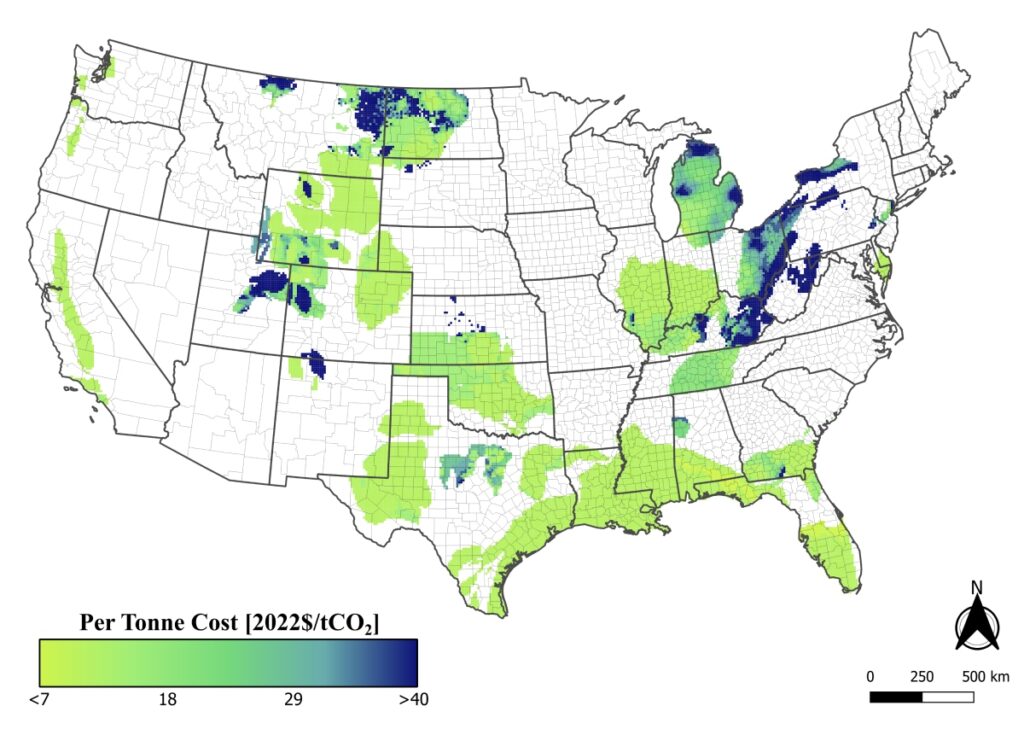
SCO2Tᴾᴿᴼ is a cutting-edge geospatial siting tool and database designed to revolutionize subsurface analysis for carbon storage and energy transition planning.
Pineywoods CCS Hub
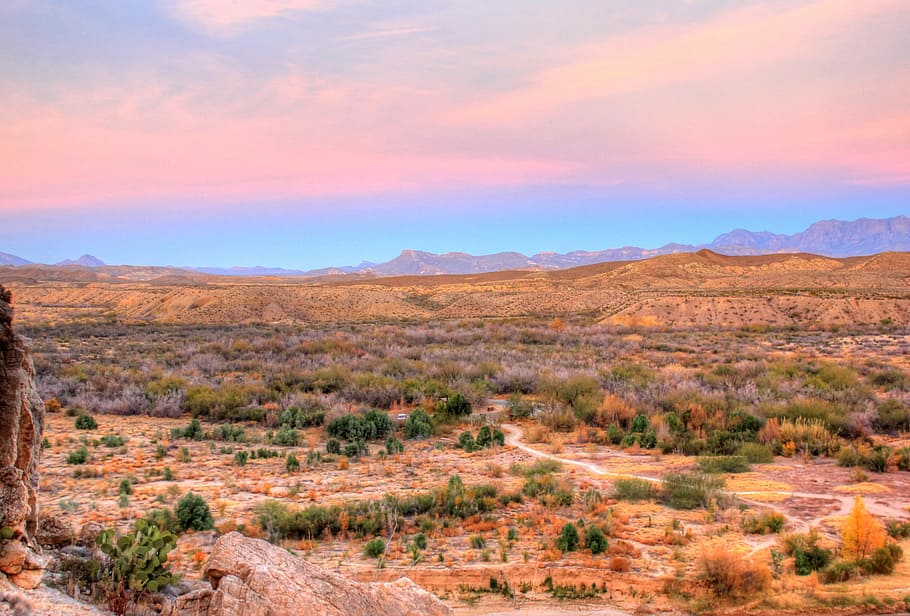
The Pineywoods CCS Hub is an industrial-scale carbon capture and storage (CCS) initiative aimed at providing a sustainable decarbonization solution for manufacturers, power producers, and other industrial carbon emitters in Southeast Texas. Designed to help businesses meet emissions reduction targets and comply with evolving environmental regulations, the project initially targets a storage capacity of 5 million tons of CO₂ per year, with potential expansion to over 50 million tons. By offering long-term carbon management solutions, the hub enables industries to maintain operations, retain jobs, and contribute to local economic growth while mitigating climate impacts. The project has already generated strong interest from potential customers, with multiple industrial partners engaging in negotiations to utilize the hub’s infrastructure for carbon storage.
MethaneDART: The Methane Emissions-Detection, Analysis, and Resource Management Tool
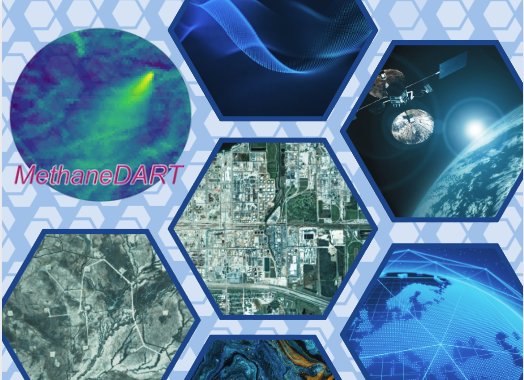
MethaneDART (Methane Emissions-Detection, Analysis, and Resource Management Tool) was developed as a geospatial intelligence platform designed to monitor and analyze methane emissions using satellite-based remote sensing data. Methane, a potent greenhouse gas, has seen a sharp increase in emissions over the past decade, making its detection and mitigation a critical component of climate change efforts. This tool was created to address the growing need for near real-time, high-resolution methane monitoring, particularly in the natural gas industry, where fugitive emissions represent a significant and preventable source of greenhouse gases. MethaneDART leverages advances in satellite data availability and machine learning algorithms to provide users with automated methane detection, emissions quantification, and industry-specific categorization of emission sources.
The Columbia River Basalt Technical Assistance Program (CaRBTAP)
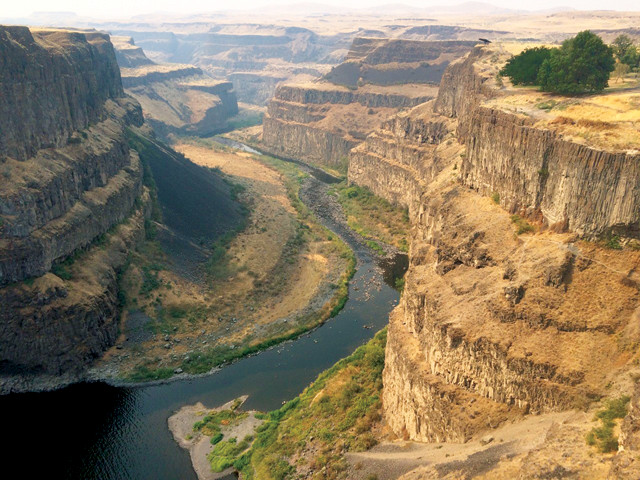
The Columbia River Basalt Technical Assistance Program (CaRBTAP) is a collaborative initiative designed to provide objective, science-based technical assistance to key stakeholders involved in carbon storage projects within the Columbia River Basalt (CRB) region. Led by Carbon Solutions LLC, alongside key partners including the Carbon Containment Lab, Pacific Northwest National Laboratory, Idaho National Laboratory, Washington Geological Survey, and the Oregon Department of Geology and Mineral Industries, the project seeks to accelerate the equitable and environmentally responsible deployment of carbon management technologies in the Pacific Northwest. Over the course of three years, CaRBTAP will lay the foundation for a robust carbon management industry in the region by addressing major scientific, economic, and policy-related challenges that impact large-scale CO₂ storage in basalt formations.
National Assessment of NGCC and Coal-Fired Power Plants with CO₂ Capture and Storage

Carbon Solutions, in collaboration with the Clean Air Task Force (CATF), conducted a comprehensive assessment of the potential deployment of carbon capture and storage (CCS) technologies across the U.S. natural gas combined cycle (NGCC) and coal-fired power plant fleets. Utilizing the proprietary SimCCSᴾᴿᴼ toolset, the project evaluated the feasibility, economic viability, and infrastructure needs for integrating CCS into the existing power generation network. The study focused on identifying optimal pathways for CCS implementation, balancing capture costs, transportation logistics, and storage availability in saline aquifers. By modeling multiple deployment scenarios, the research provided insights into the role of CCS in reducing emissions from existing power plants and supporting the broader decarbonization goals of the energy sector.
Time’s Ticking: Embarking on the Wyoming Trails Carbon Hub (WyoTCH)

Project WyoTCH—the Wyoming Trails Carbon Hub (WyoTCH, pronounced “Watch”)—is a pioneering open-access carbon hub designed to ensure that no captured CO₂ is left stranded. The initiative will develop a comprehensive Roadmap that serves both as a strategic blueprint for the commercial development of the hub and as a national model for establishing similar hubs elsewhere. WyoTCH is set to become the largest carbon management hub in the world, integrating CO₂ capture, transportation, and storage across Wyoming. Phase I aims to manage between 10 and 25 million tonnes of CO₂ per year from 30 facilities in southern Wyoming within its first five years of operation. Phase II will scale the project up to 45 million tonnes per year from approximately 60 facilities statewide within a decade.
Roadmap to CCUS in the Michigan Basin

The Roadmap to CCUS in the Michigan Basin is a comprehensive initiative aimed at accelerating the deployment of carbon capture, utilization, and storage (CCUS) in Michigan. This project will establish a technical assistance partnership to support the growth of an environmentally responsible and socially equitable carbon management industry.
NWF Carbon Map: Wyoming Carbon Management and Wildlife Decision-Support Tool
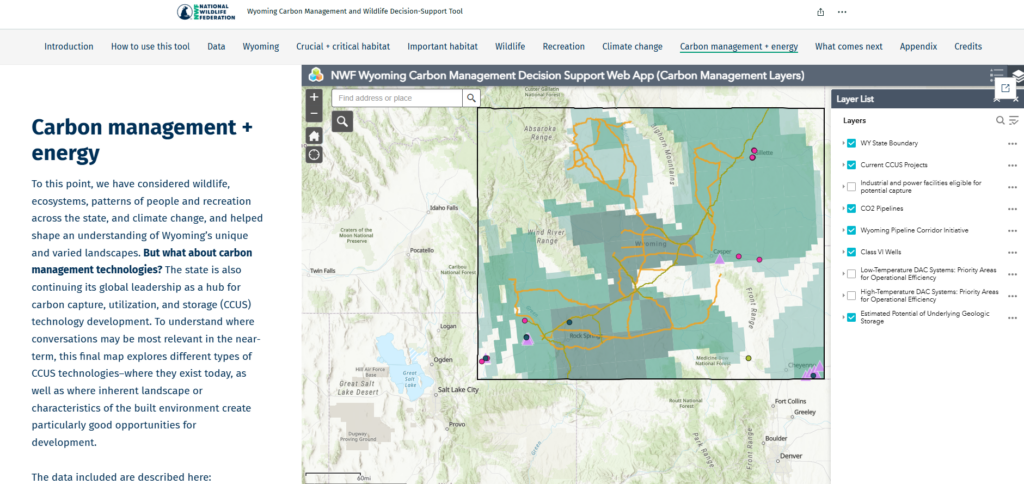
The National Wildlife Federation (NWF) partnered with Carbon Solutions to develop the Wyoming Carbon Management and Wildlife Decision-Support Tool, integrating carbon management infrastructure with key environmental and wildlife conservation data.
NECTAR: A Rapid Decision Support Tool for Negative CO Emission Hybrid Energy System Development and Analysis
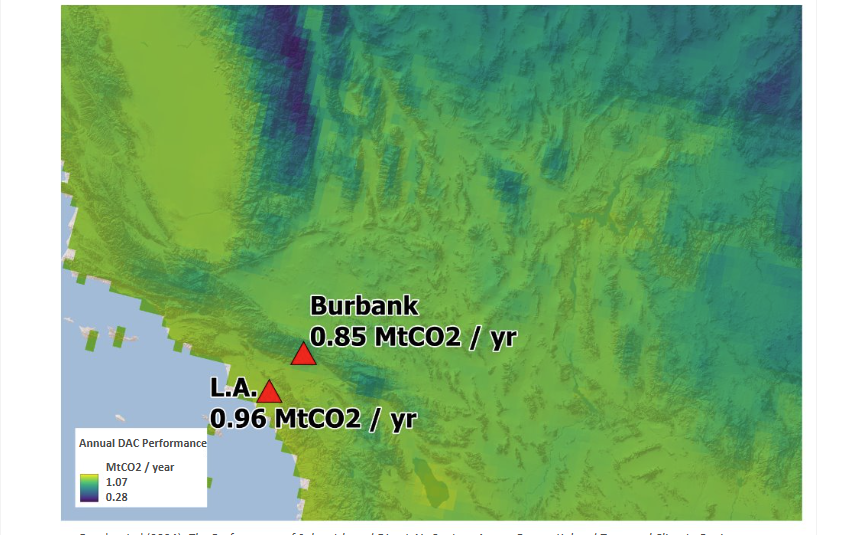
The Negative CO₂ Emission Transition Roadmap (NECTAR) was developed as a decision support tool to facilitate the strategic deployment of Direct Air Capture with Carbon Storage (DACCS) and other carbon dioxide removal (CDR) technologies.
